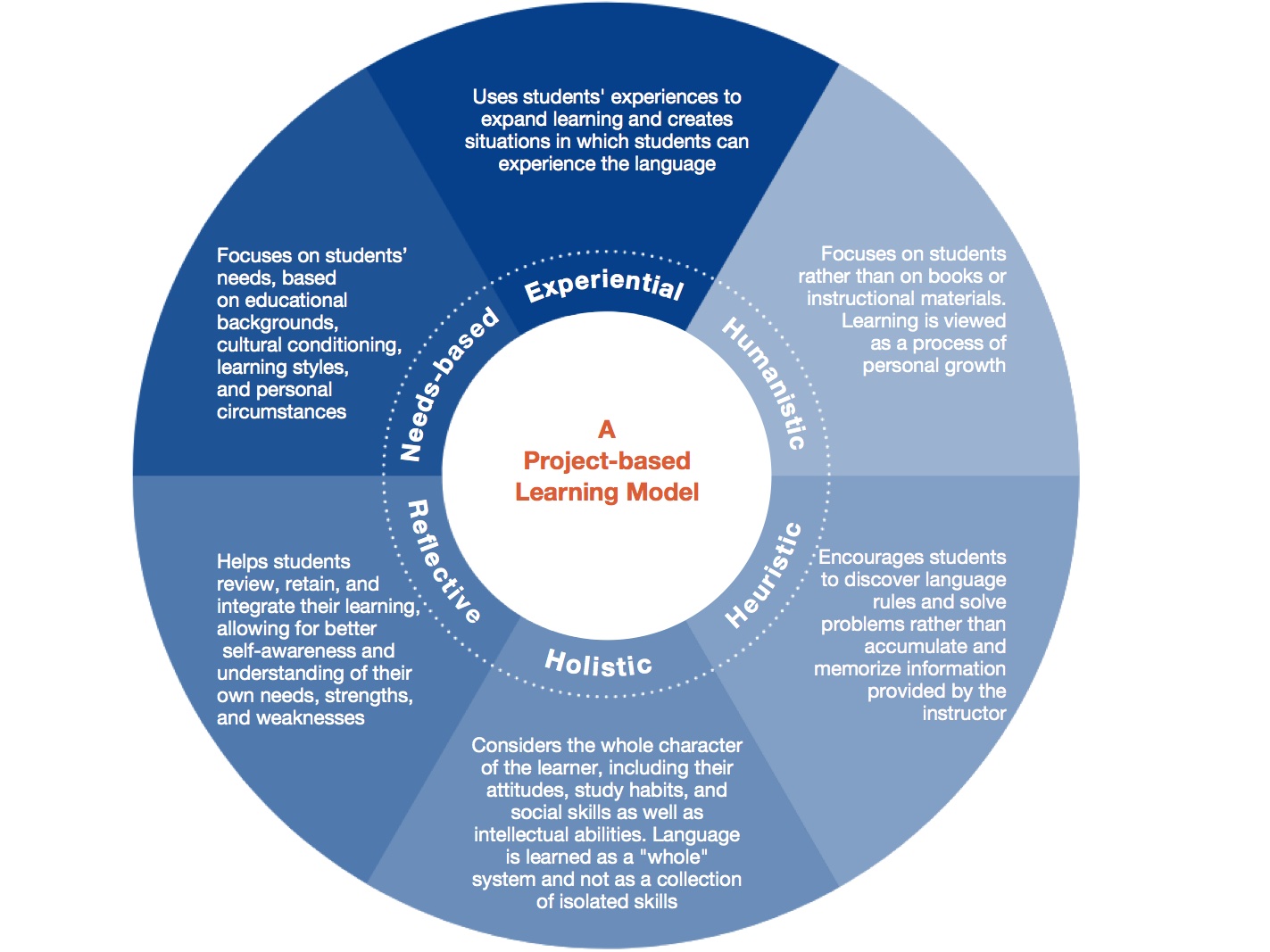Fostering critical thinking, academic readiness, and cultural awareness has been as important to INTERLINK as helping students improve their linguistic skills. At INTERLINK, learning is not viewed as the accumulation of data but as a dynamic process of discovery, learning, and personal growth.
Basic Tenets

Needs-based
This approach focuses on student needs and supplies prescriptive actions students should take to address those needs. Factors such as students’ specific language needs, educational background, cultural conditioning, idiosyncratic learning style, and personal circumstances all play a role in how (and how well) a student learns, and therefore, are of consequence to how instructors conduct classes.
Experiential Approach
The experiential approach uses student experiences in and out of class to expand and reformulate student knowledge collaboratively. Instructional materials, when used, are supplementary, not central. Learning takes place outside as well as inside the classroom through continual language practice and contact with authentic texts. With learning outcomes in mind, instructors use student experiences as starting points and focus on expanding, examining, challenging, and reformulating student knowledge. Student success is measured by what they can “do” communicatively, academically, and cross-culturally rather than by what they “know” cognitively.
Holistic Education
Taking the whole character of the learner into consideration, holistic education factors in all aspects of a student’s learning, including their attitudes, study habits, and social skills as well as their critical thinking abilities. Further, language is taught as a “whole” system and not as a collection of isolated skills; therefore, grammar and pronunciation are not taught in isolation and without regard to real communication.

Reflective Thinking
Reflection helps students review, retain, and integrate their learning as well as develop and practice effective learning strategies. It helps them identify their own needs, strengths and weaknesses, and apply their knowledge and skills in new ways to overcome problems. It contributes to greater self awareness, improved sensitivity, respect for others, and to clear and critical thinking.
Humanistic Orientation
A humanistic approach incorporates students’ own experiences and interests into learning projects and activities. Viewing learning as a process of personal and intellectual growth, the instructors focus on students rather than on books and materials, which results in a caring relationship between students and instructors.
Heuristic Learning
Heuristic learning encourages students to discover language and discourse rules and patterns through guided experience and reflection. Rather than an instructor-centered “teach and test” approach, instructors help students develop “inner criteria for correctness” and an intuitive sense for correct language use. In this approach, students are encouraged to “learn how to learn” and not just accumulate discreet facts and pieces of information.
